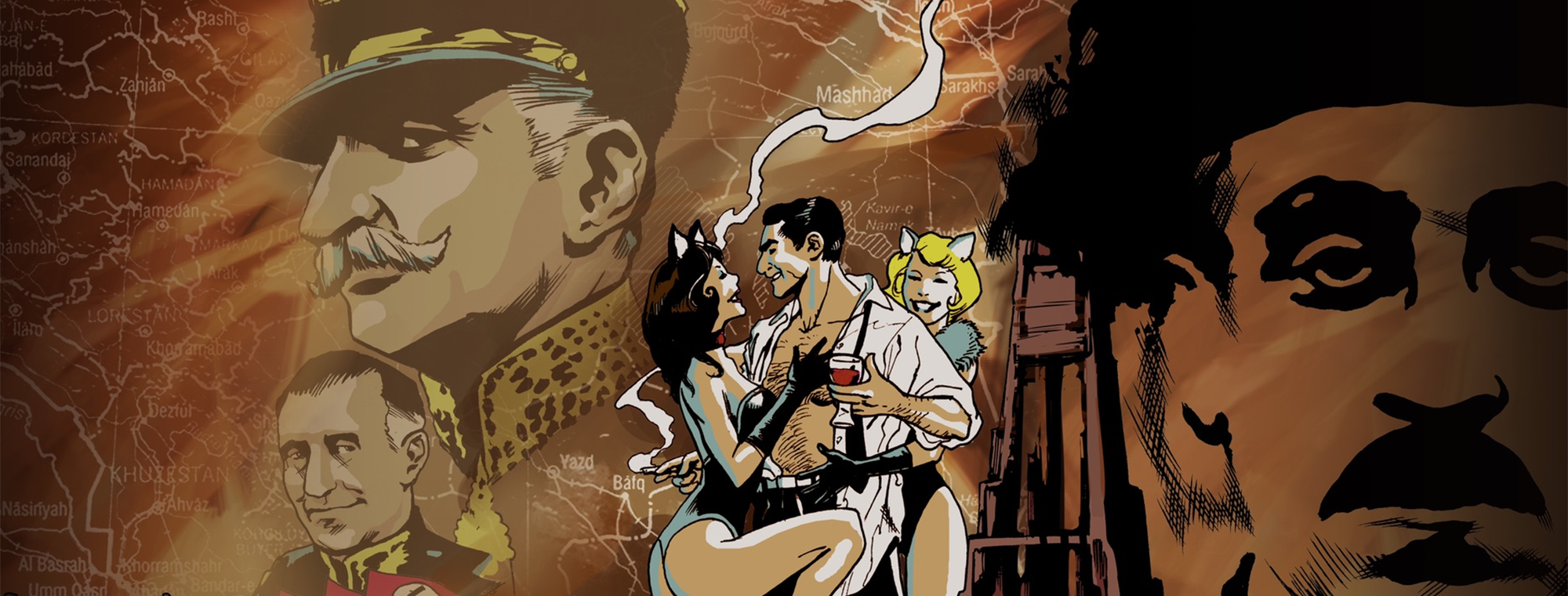Farshad Farahat is a writer and actor (Argo, House of Cards) who is studying for a PhD in Conflict Resolution at Nova Southeastern, focusing on resolving US-Iran grievances. He is on the Ploughshares Fund board of directors and is now performing in Operation Ajax [1] in San Pedro California, a theater play on the 1953 CIA coup in Iran. An understanding of the history of US-Iran relations helps us understand the complexities today. In anticipation of his performance we asked him a few questions.
PF: You recently had a piece published in Newsweek [2] with Jamal Abdi, President of NIAC, a Ploughshares Fund grantee, on the price of war. You wrote, "those who know the costs... cannot silently stand by and allow it to happen again." How can people in the United States work to prevent another disastrous “war-of-choice” in the Middle East, whether by accident or design?
I think we have to understand our interests in the region. I believe our wars in the Mid-East have not been in our interest, the Iraq war has cost us trillions of dollars, many soldiers lost, and hundreds of thousands of human-beings killed in the region. These foreign policies have not been in the US interest, or in the interest of security and prosperity in the Middle East.
To prevent a new war in the region, we need to get involved with our representatives and make sure that the president cannot go to war with Iran without Congressional authorization. That's number one in my opinion.
Secondly, people must push their representatives to get the US back into the Iran deal, the JCPOA. It is the way forward — not just for the United States, Iran and the P5, but for future nonproliferation treaties. We definitely need to get back into that deal. The deal will bring economic engagement within a region that is currently only engaging in military and clandestine relationships. Economic relationships with Iranian civil society will bring more stability to Iran’s neighbors, from Tel Aviv to Riyadh. The nuclear deal was a blueprint or a starting point to start working on economic engagement within the region, and within the region’s civil societies, so that these civil societies can strengthen and control the authoritarian wings of their governments.
PF: What draws you to Ploughshares Fund’s mission to reduce and eventually eliminate nuclear weapons, to stop their spread and build peace in regions of conflict where they exist? How did you get started, and what inspires you to pursue this cause?
I got inspired by the great work Ploughshares was doing on the Iran deal and what they were doing for nuclear treaties across the board — whether it's North Korea, Russia, etc. Personally, as a child, I lived through the Iran-Iraq war and the use of WMDs and chemical warfare, and that left a pretty solid effect on me, and the group that I found that was tackling weapons of mass destruction and tackling it head-on was Ploughshares Fund. And so those two entities, the Iran deal and my experiences with WMDs really brought me to Ploughshares and their mission to build peace in regions that have nuclear or, potentially, WMD conflicts.
PF: You co-wrote the play, “Operation Ajax,” which is the name of the 1953 CIA covert operation to overthrow the Prime Minister of Iran. It’s been called “a mind-blowing, true tale of spies, subterfuge, and sabotage.” The subject is dramatic and interesting in its own right. How does the play raise the profound issue of preventing war with Iran today, and containing their nuclear program (which is not currently a weapons program, but that could change) through diplomacy?
I think by looking at the episode of Operation Ajax we see a lot of parallels to today’s issues between the US and Iran. Are we willing to repeat those mistakes? In the early 1950s, Iran nationalized its oil, had a democratic government and was geared to join the world, especially America, in a very productive, positive way. Iran was gearing to become an American ally. The prime minister, Mossadegh, was very pro-American, pro-democracy, but unfortunately the oil cartel of BP, Anglo-Iranian Oil at the time, conspired with the CIA to overthrow the government. The coup started first by sanctioning Iran’s oil, which is very similar to today’s US sanctions regime on Iran. By sanctioning Iran’s entire economy, the coup conspirators strengthened the most autocratic wings of the Iranian government to carry out their operation. And since 1953, we have now had 65 years of Iranian governments run by the monarchy or by the Islamic Republic that has taken us away from Iranian civil society and democracy. Ironically, both monarchists and the Islamists were street soldiers for the CIA during Operation Ajax.
Today, if we go down the same path — sanctioning Iran’s civil society, embargoing their exports, threatening them with war, infiltrating with clandestine CIA efforts — it will lead to the civil society again, becoming weaker, democracy becoming weaker, the people becoming weaker and it will strengthen the autocratic wings of the Iranian regime, namely the Revolutionary Guard and their hard line supporters within Iran’s government. And that will lead us either to war or to further instability in the region.
Economic war is very similar to physical war, and in some ways more devastating for the targeted population. Normally these kind of umbrella economic sanctions lead to more autocratic regimes as we've seen in the past 60 years in Iran after Operation Ajax.
PF: Thank you.
We’re proud to have the support of Farshad Farahat as a member of our board of directors and as a leader on these issues, and we're proud to support the National Iranian American Council and many others pushing for saner nuclear policy and preventing war with Iran.
I'll see you at #OperationAjax.
Post to Twitter [3]
